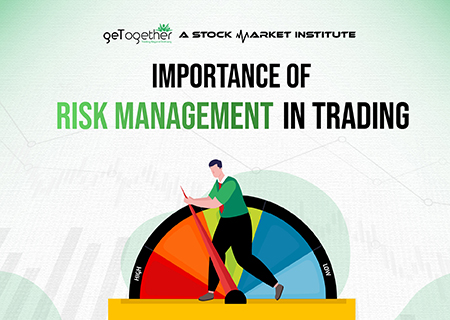How the Importance of Risk Management Drives Successful Project Outcomes
How the Importance of Risk Management Drives Successful Project Outcomes
Blog Article
The Relevance of Recognizing the Value of Risk Management in Different Industries

The Core Principle of Risk Management and Its Objective
Risk Management, the foundation of many industries, rests on the identification, assessment, and mitigation of unpredictabilities in a service environment. It is an indispensable practice that permits organizations to protect their possessions, reputation, and total survival. By appropriately recognizing potential dangers, businesses can develop methods to either avoid these risks from happening or lessen their impact. The analysis process includes analyzing the likelihood and prospective severity of these dangers. When threats have actually been identified and assessed, the mitigation process includes designing methods to minimize their prospective influence. This procedure is ongoing and cyclical, guaranteeing that services are planned for the ever-changing nature of Risk in different industries. The primary function, therefore, is to cultivate strength amidst uncertainties.
Advantages of Carrying Out Risk Management in Business Procedures

Introducing the Role of Risk Management in Different Industries
While every market challenges its special set of threats, the application of Risk Management techniques continues to be a common measure in their quest of sustainability and development. In the healthcare field, Risk Management requires guaranteeing client safety and security and data security, while in money, it involves mitigating financial investment risks and making certain regulatory compliance (importance of risk management). Building and construction business concentrate on employee security, task hold-ups, and budget overruns. In the technology field, business minimize cybersecurity dangers and technology obsolescence. Ultimately, the function of Risk Management across markets is to recognize, analyze, and minimize risks. It is a crucial component of critical planning, allowing organizations to secure their assets, optimize chances, and accomplish their goals.
Real-life Situation Studies Showing Successful Risk Management
To recognize the importance of Risk Management in these lots of fields, one can aim to numerous real-life circumstances that highlight the effective application of these procedures. For instance, in the power industry, British Petroleum established Risk reduction plans post the 2010 Gulf of Mexico oil spill. They executed much better safety procedures and more stringent laws which considerably lowered more mishaps. In finance, Goldman Sachs official statement efficiently navigated the 2008 economic dilemma by determining potential mortgage-backed safety and securities dangers early. Last but not least, Toyota, post the 2011 quake in Japan, revised its supply chain Management to decrease disturbance threats. These cases demonstrate exactly how markets, picking up from dilemmas, effectively applied Risk Management approaches to decrease future dangers.
Future Trends and Advancements in Risk Management Approaches
As the world remains to advance, so as well do the fads and developments in Risk Management techniques. Rapid innovations in technology and information analytics are reshaping the Risk landscape. Huge data and AI are now important in forecasting and alleviating threats. Organizations are leveraging these tools to develop predictive versions and make data-driven choices. Cybersecurity, when an outer problem, has actually catapulted to the forefront of Risk Management, with strategies concentrating on reaction, detection, and avoidance. The assimilation of ESG (Environmental, Social, Administration) factors right into Risk Management is another growing fad, mirroring the raising recognition of the duty that environmental and social dangers play in organization sustainability. Hence, the future of Risk Management hinges on the blend of advanced modern technology, cutting-edge methods, and an all natural strategy.
Final thought
Finally, understanding the significance of Risk Management throughout a range of markets is crucial for their longevity and success. Customized techniques can aid mitigate prospective sites threats, protect properties, and foster stakeholder count on. In addition, proactive decision-making help in regulatory conformity and optimizes resource usage. Inevitably, successful Risk Management adds to much more resistant and lasting services, highlighting the significance of this method in today's vibrant and extremely affordable service atmosphere.
While every industry confronts view it its distinct set of threats, the implementation of Risk Management techniques continues to be a typical in their pursuit of sustainability and development. In the medical care market, Risk Management requires making certain person safety and information security, while in finance, it involves mitigating financial investment threats and making certain governing compliance. Eventually, the function of Risk Management across sectors is to recognize, examine, and reduce risks. These cases show just how markets, learning from situations, efficiently applied Risk Management approaches to reduce future risks.

Report this page